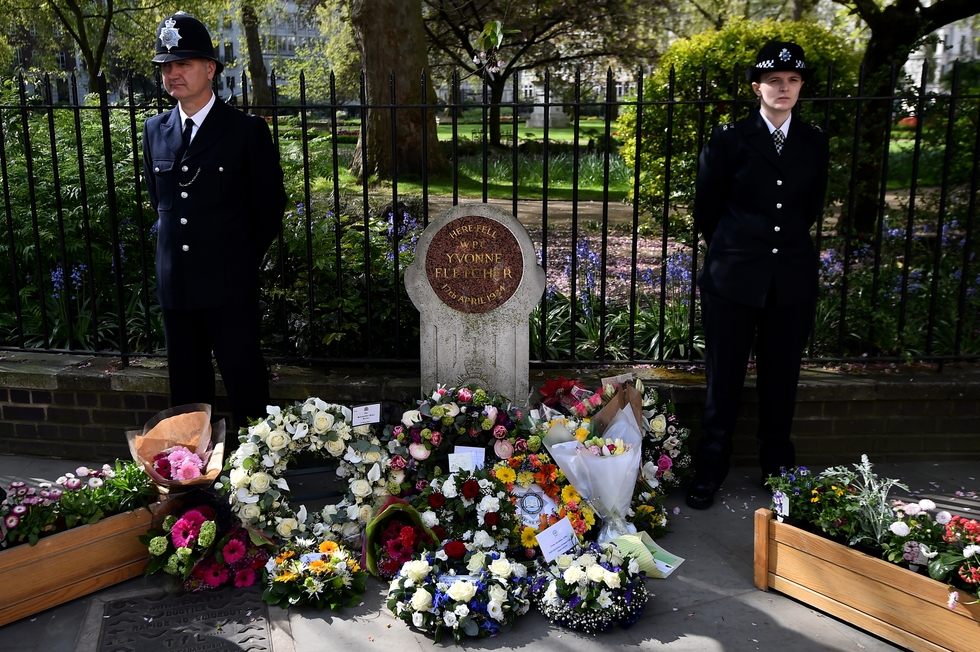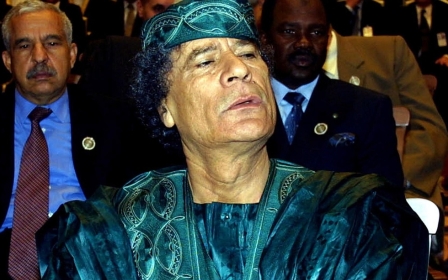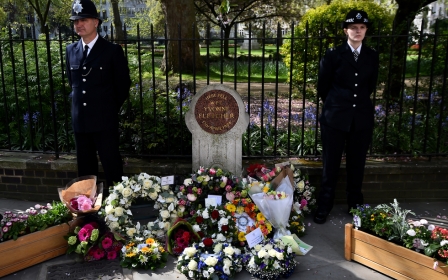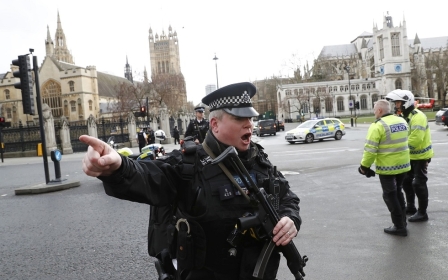Libyan freed over killing of Yvonne Fletcher 'for reasons of national security'

A Libyan man who UK authorities suspected of killing a police officer during protests against the regime of Muammar Gaddafi has been released as evidence against him could have breached national security, say police.
The suspect, now in his fifties and believed to be living in the UK, was arrested in November 2015 as part of the long-running investigation.
Yvonne Fletcher, 25, was killed in April 1984 as she policed a small and peaceful protest outside the Libyan embassy in London.
The Metropolitan Police said on Tuesday that although "enough material to identify those responsible" had been gathered, it could not be presented in court.
Police said that the Counter Terrorism Command's investigation pursued hundreds of lines of enquiry, gathering evidence in Libya and reviewing material previously unseen by the police.
But after a police review, the statement said, prosecutors decided there was "insufficient admissible evidence to charge the man".
“Our judgement is that this concludes what was by far the best opportunity to solve this tragic case,” the statement said, “and provide a degree of closure for the victims and their families.
“This investigation will never be closed but the likelihood of finding further evidence, in Libya or elsewhere, is low.”
Shooting, then standoff
The murder proved pivotal in relations between London and Tripoli, which did not resume until 1999, when Libya accepted "general responsibility" for Fletcher's death.
In 2009, the British foreign office was forced to deny that it had struck a deal with Libyan officials in which it had agreed not to seek to prosecute Fletcher's killer after a former British ambassador to Tripoli, Anthony Layden, said that he had signed an agreement to that effect in 2006.
At the time, the UK was seeking to secure lucrative trade deals with Libya amid blossoming relations sealed by the so-called "deal in the desert" struck between Tony Blair and Muammar Gaddafi in 2004.
On the day of the shooting, supporters of Gaddafi were holding a rival rally outside the embassy, then referred to by the Tripoli government as the “Libyan People's Bureau”.
'We had hoped that the latest turn of events would finally lead to some closure for the family'
- Family of Yvonne Fletcher
A number of shots, including from an automatic weapon, were fired from within the embassy, hitting Fletcher fatally in the back.
There then followed a 10-day standoff between the police and the occupants of the embassy before 30 of the occupants were deported back to Libya.
The overthrow of Gaddafi's government in 2011 had given investigators new hope of solving the crime.
In a statement also released by police, Fletcher's family said: “We are deeply disappointed and frustrated that a prosecution cannot proceed at this time. We had hoped that the latest turn of events would finally lead to some closure for the family."
In 2012, Libya's then prime minister Abdel Rahim al-Kib laid a wreath at the memorial to Fletcher.
Middle East Eye propose une couverture et une analyse indépendantes et incomparables du Moyen-Orient, de l’Afrique du Nord et d’autres régions du monde. Pour en savoir plus sur la reprise de ce contenu et les frais qui s’appliquent, veuillez remplir ce formulaire [en anglais]. Pour en savoir plus sur MEE, cliquez ici [en anglais].





